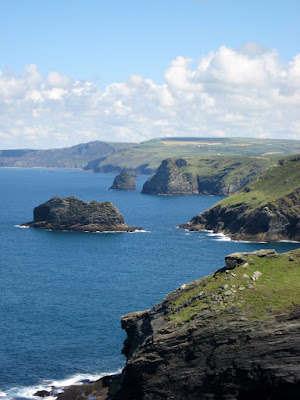
By night and day I shadowed her
From Toneborough Deane to Dunkery Tor,
I shadowed her asleep, astir,
And yet I could not bear -
Till Wrestler Joe anon began
To figure as her chosen man,
And took her to his shining van -
To doom a form so fair!
He made it handsome for her sake -
And Dunkery smiled to Exon Moor -
He made it handsome for her sake,
Painting it out and in;
And on the door of apple-green
A bright brass knocker soon was seen,
And window-curtains white and clean
For her to sit within.
And all could see she clave to him
As cleaves a cloud to Dunkery Tor,
Yea, all could see she clave to him,
And every day I said,
"A pity it seems to part those two
That hourly grow to love more true:
Yet she's the wanton woman who
Sent one to swing till dead!"
That blew to blazing all my hate,
While Dunkery frowned on Exon Moor,
And when the river swelled, her fate
Came to her pitilessly . . .
I dogged her, crying: "Across that plank
They use as bridge to reach yon bank
A coat and hat lie limp and dank;
Your goodman's, can they be?"
She paled, and went, I close behind -
And Exon frowned to Dunkery Tor,
She went, and I came up behind
And tipped the plank that bore
Her, fleetly flitting across to eye
What such might bode. She slid awry;
And from the current came a cry,
A gurgle; and no more.
How that befell no mortal knew
From Marlbury Downs to Exon Moor;
No mortal knew that deed undue
But he who schemed the crime,
Which night still covers . . . But in dream
Those ropes of hair upon the stream
He sees, and he will hear that scream
Until his judgment-time.
 (Club Song)
(Club Song)














































